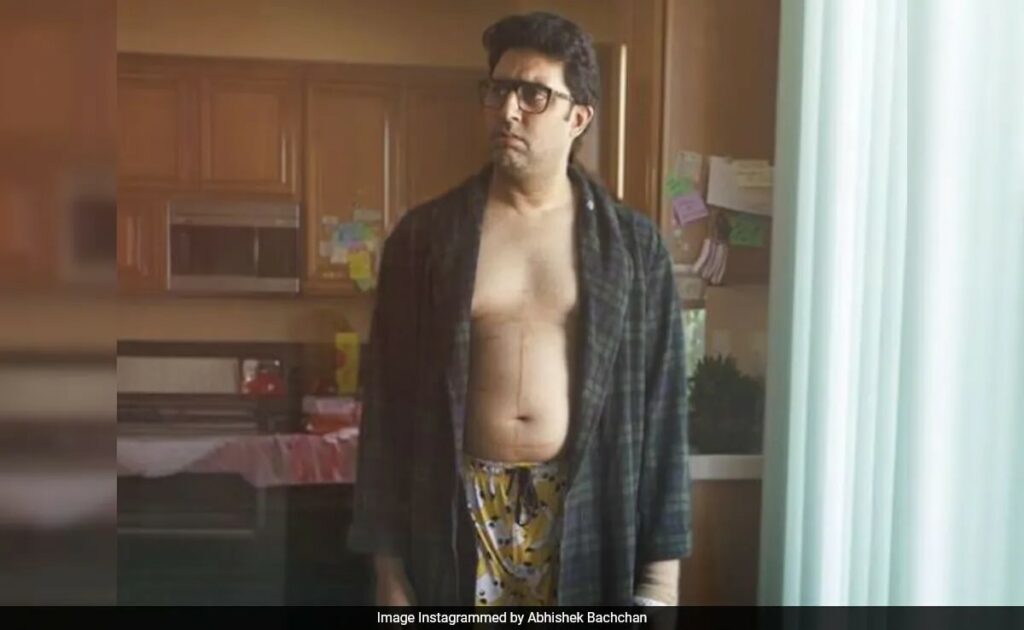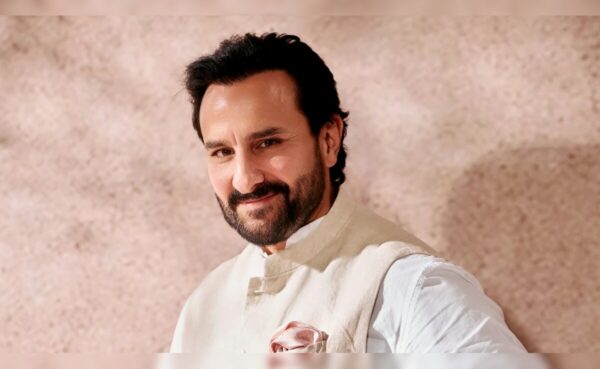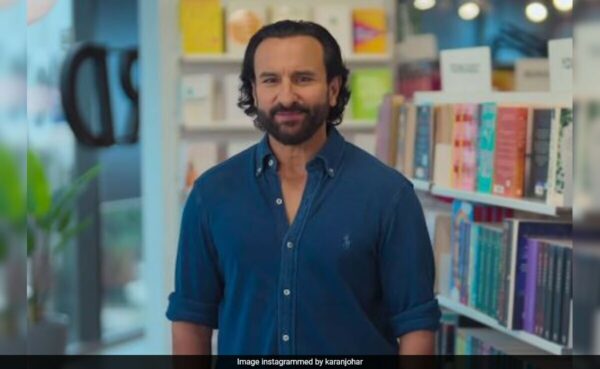I Want to Talk Review: Abhishek Bachchan Delivers A Flawless And Profoundly Moving Performance
5 min read
I Want to Talk Review – It touches an instant chord and is achingly life-affirming even as it is acutely aware of our fragility and transience.
The intimation of death signals the beginning of a new life in the here and now for Arjun Sen, the voluble and showy adman-protagonist of Shoojit Sircar’s I Want to Talk. It inevitably causes confusion and agony but strengthens his resolve to fight while altering his perspective on existence and mortality. Written by Ritesh Shah and based on a real-life Indian-American professional, Arjun produces adverts to encourage people to buy products they might or might not need. His joys rest on the sterling success he has in pulling off his acts of persuasion.
And then out of the blue, laryngeal cancer intervenes. A chatty man who trades in words is in danger of losing his voice. Even as his dizzying ride on the crest of a wave is upended, it ignites in him a renewed desire to live a shot.
I Want to Talk is a film about a life-threatening disease and a man who will not let it scare him down. The story has ample potential to stir the lachrymal glands. But as is his wont, the director of October, which was about a young woman rendered comatose by a mishap, keeps a tight rein on the tearjerking.
When Arjun is diagnosed with cancer, he breaks down and teeters on the edge of crippling despair. But he quickly rises above the unsettling turn of events and gives himself a chance – in fact, many chances – to keep going even as the icy stare of death is fixed upon him.
I Want to Talk tells a story laced with pain and heartbreak but it does so without gloating upon the misery and distress that swirls around Arjun. Hope never deserts him even when his divorce casts a shadow on the future of his relationship with his only daughter Reya (Pearle Dey as a child, Ahilya Bamroo as a teenager).
His worries and fears do not drive him into a state of catatonic panic. He makes numerous trips to the hospital, his favourite trolley bag in tow, undergoes innumerable surgeries and hears several dire prognoses about the slimness of his chances of survival. But he soldiers on. He has nothing to lose.
Arjun’s pain is as physical as it is emotional but he makes it a point not to show either to his daughter and the people who lend a helping hand – a doctor who speaks his mind (Jayant Kripalani), a sensitive nurse and friend (Kristin Goddard) who steps in whenever Arjun needs help, and a handyman (Johnny Lever, who makes the most of a small part).
Like it was in Piku (which, was about the anticipation of death at the end of a full life) and October, which dealt with a life that comes to a standstill in its prime, the storytelling in I Want to Talk is shot through with studied detachment.
Feelings manifest themselves in silences and words unspoken. Quietude is the tool Sircar and lead actor Abhishek Bachchan employ to convey emotions that are best when left unverbalized. Not that there is no talk in I Want to Talk but none of it was for the heck of it.
Abhishek Bachchan, in the performance of his life, is permitted only a couple of scenes in which he emotes without holding back. For the rest of the film, what he does with his face, eyes and body obviates the need for words.
In articulating Arjun’s innermost responses to a physically alarming medical condition and bearing the bodily changes that affect the character, Bachchan delivers a flawless and profoundly moving performance. He has never ever been better.
Where would I Want to Talk figure in Shoojit Sircar’s oeuvre? May be not right at the top, but this film is no slave to ratings and rankings. It has a quality that separates it from most other stories centred on a duel with death. It celebrates tenacity and fortitude.
Arjun’s stoicism fuels the drama inherent in the battle for survival that he wages. The character and the actor playing him are in perfect sync with each other. Neither, like the film they are in, is looking for undue sympathy. All they want is to not let the magnitude of the crisis tower over everything else.
In I Want to Talk, the protagonist goes under the knife more frequently than he can count, but he hides the scars if he can help it. When his daughter wonders if his repeated hospital visits are a ruse, Arjun is compelled to provide proof that it isn’t.
He does not wish to compound the anguish of a daughter who is already grappling with the effects of a broken family. The scars on the girl’s heart aren’t visible but they matter to Arjun as much as the tell-tale ones on his own body do.
Some viewers might wonder if I Want to Talk would have been more heart-rending had it opted for direct methods of manipulation. But then it would have a very different film. It is just as well that it isn’t.
Brushes with death do not, more often than not, end on a positive note in a movie. But owing to the way Sircar sees it refracted through the experiences of a man who goes toe-to-toe with a disease that the world dreads, Arjun’s encounters contain the possibility of inspirational renewals.
But that isn’t the only distinguishing feature of the film. It touches an instant chord and is achingly life-affirming even as it is acutely aware of our fragility and transience.
Arjun Sen isn’t Shiuli Iyer, a flower that blooms at night and is gone by the crack of dawn. He is akin to a resolute tree that weathers the worst of storms and refuses to be toppled over.
Sircar has a proven way of extracting relatable drama from little life-and-death moments in which darkness intermingles with determination and our desire for light and, in the process, loses its power to intimidate and mortify.
I Want to Talk hinges on the tics that propel tales of the ‘terminally’ ill but it uses the conventions of the genre sparingly, sensitively and with quietly devastating effect.




